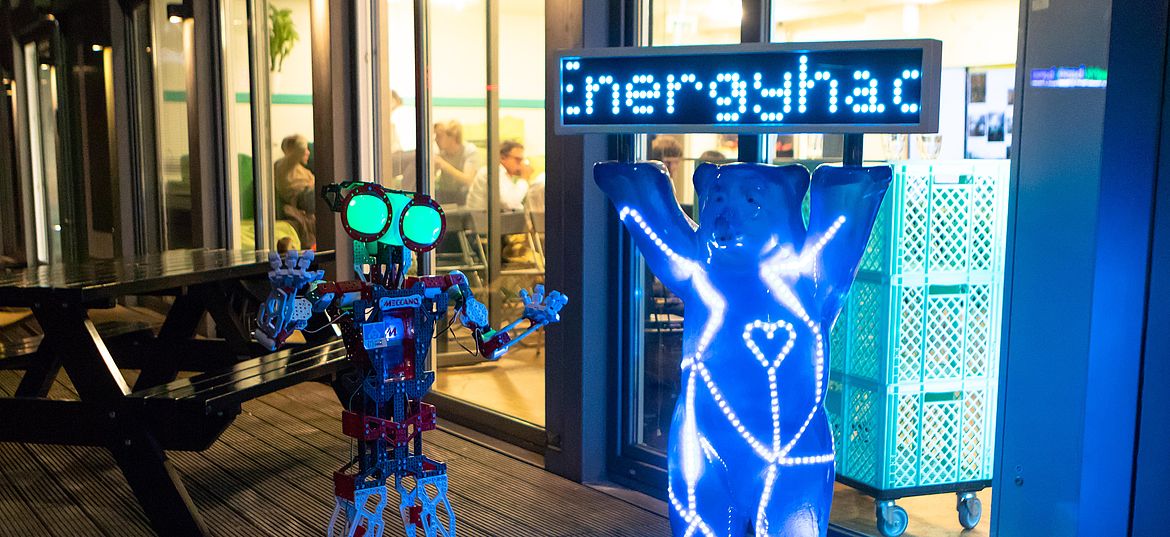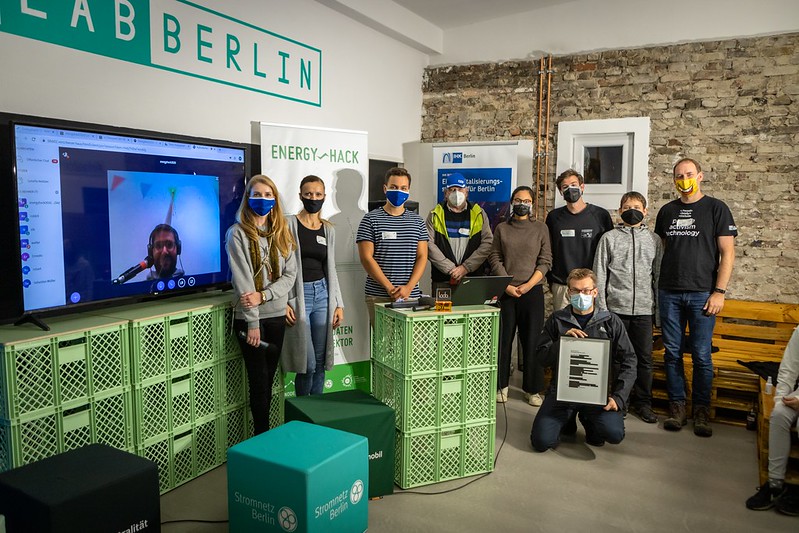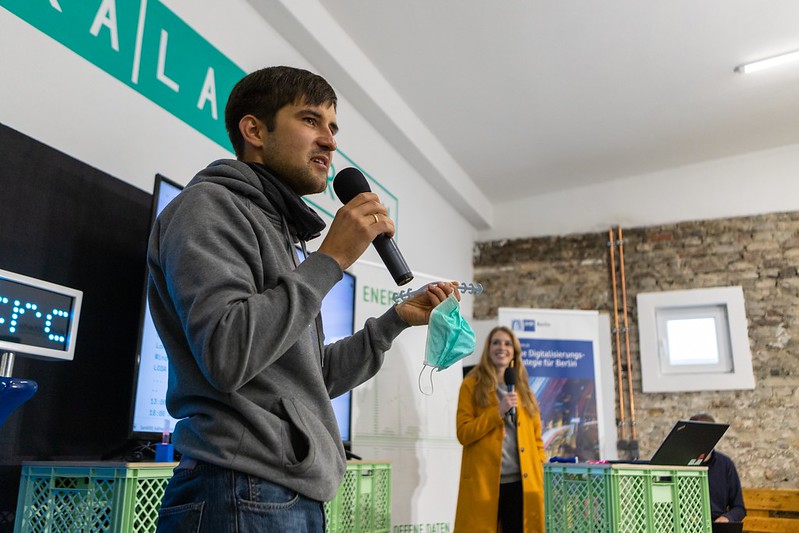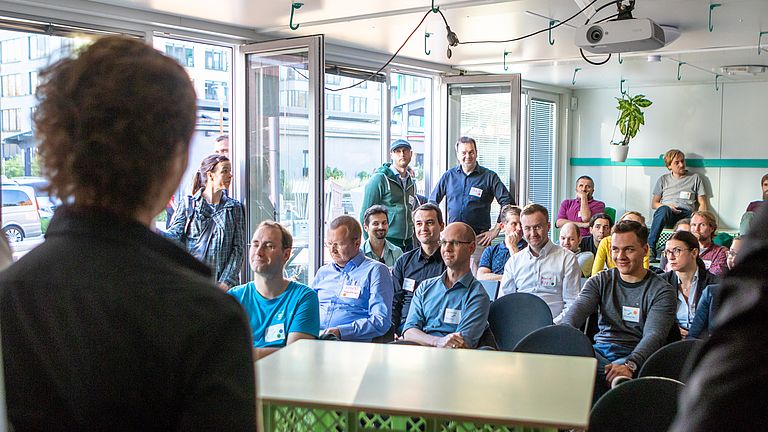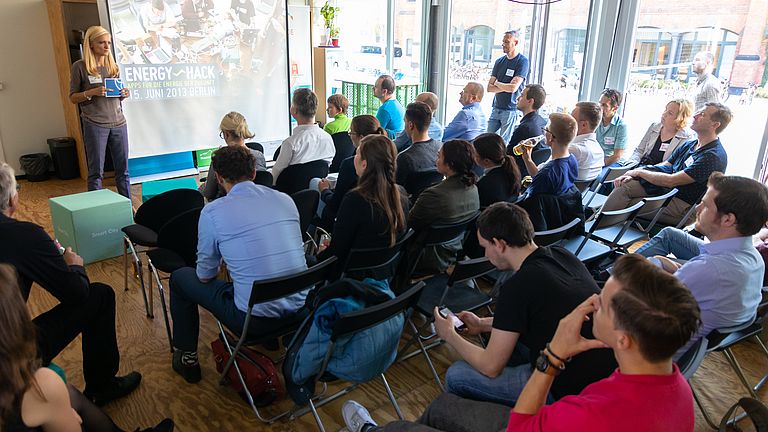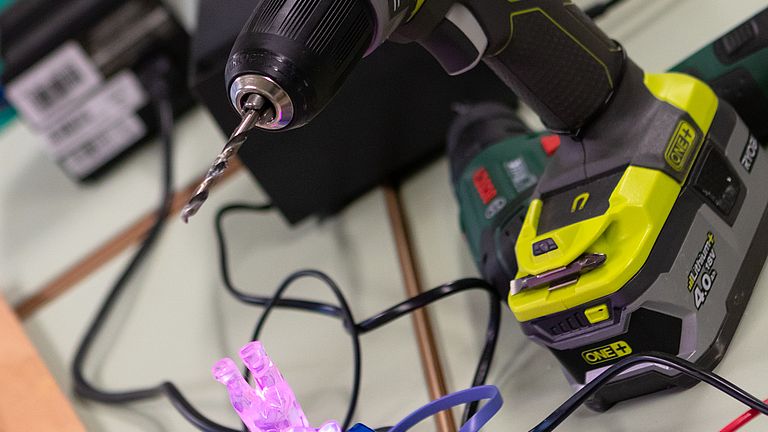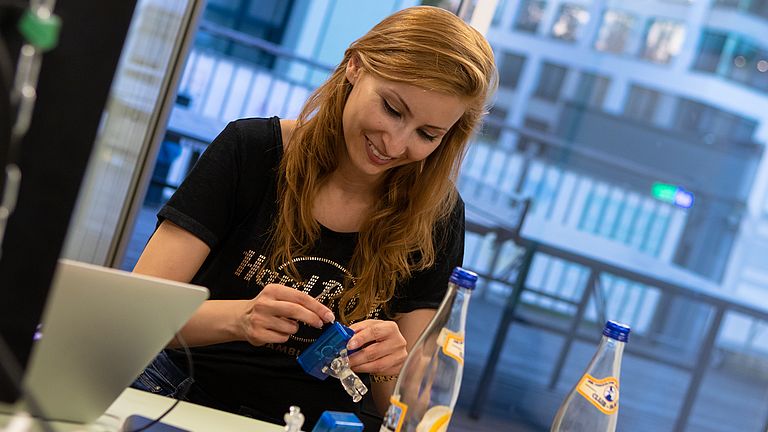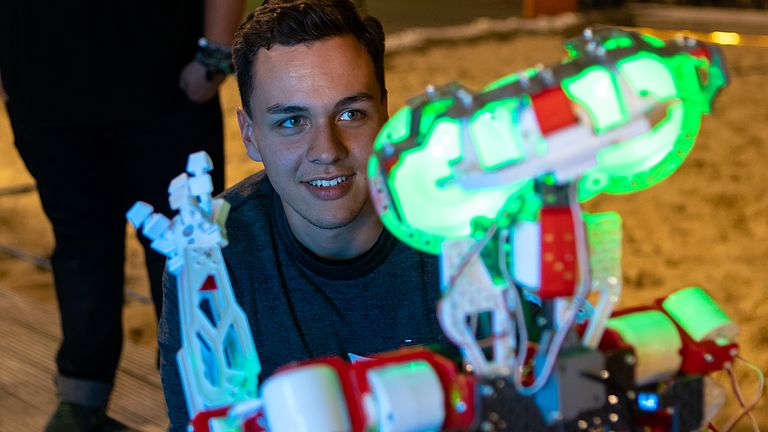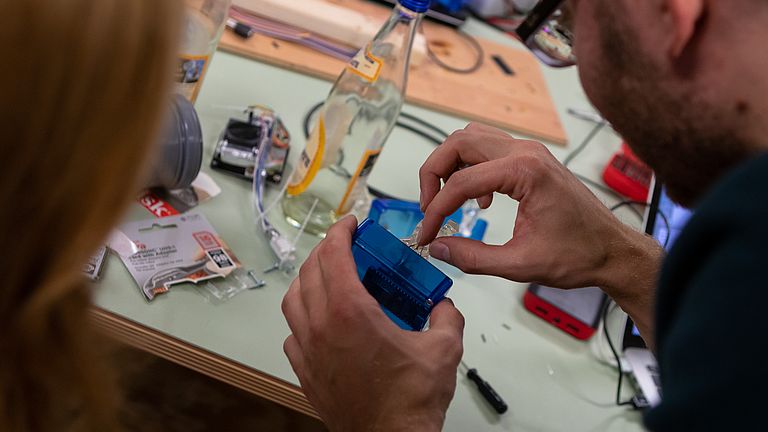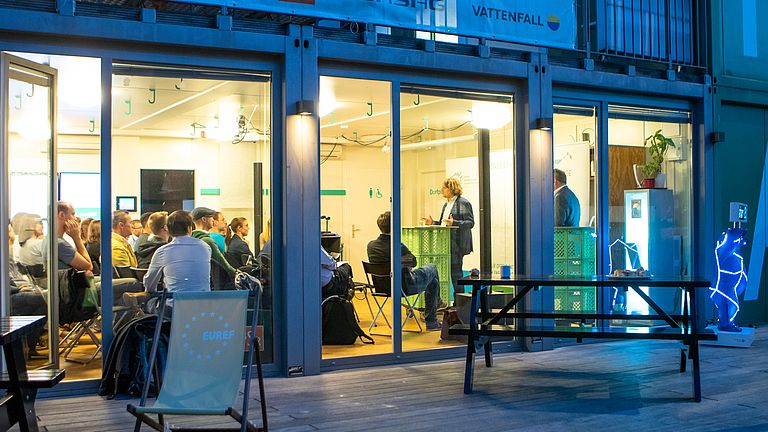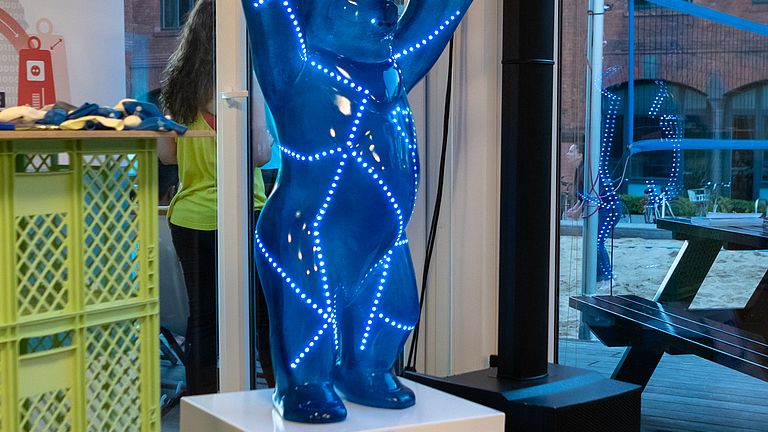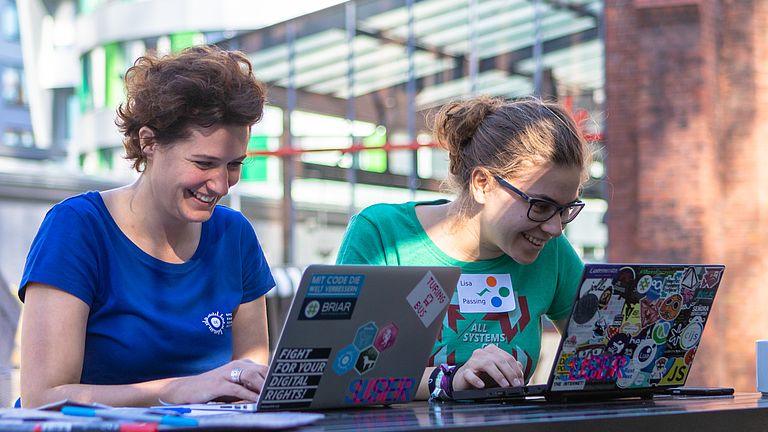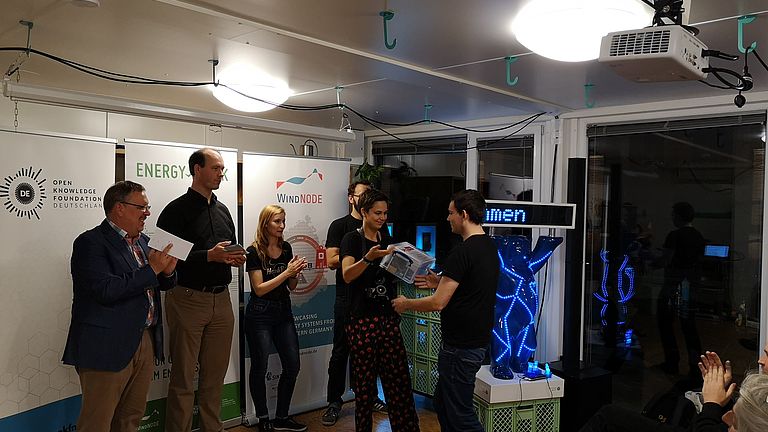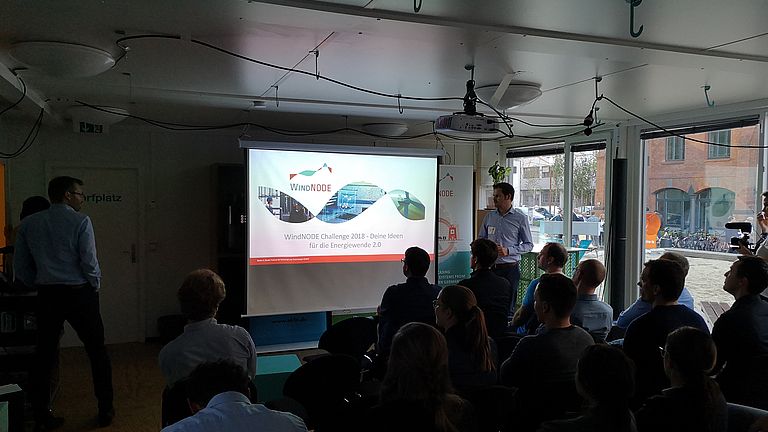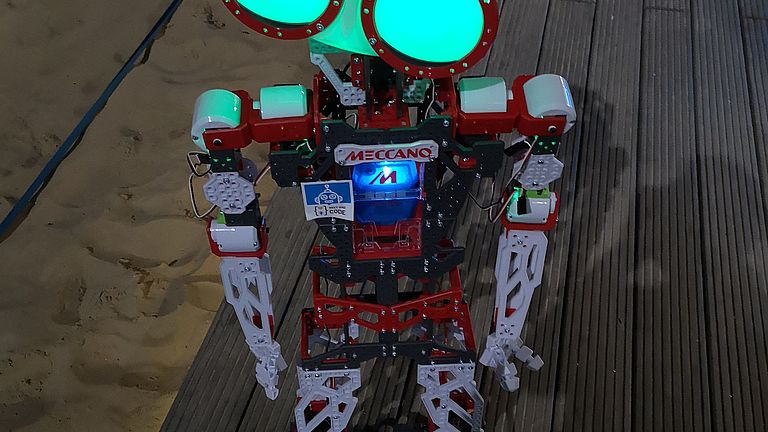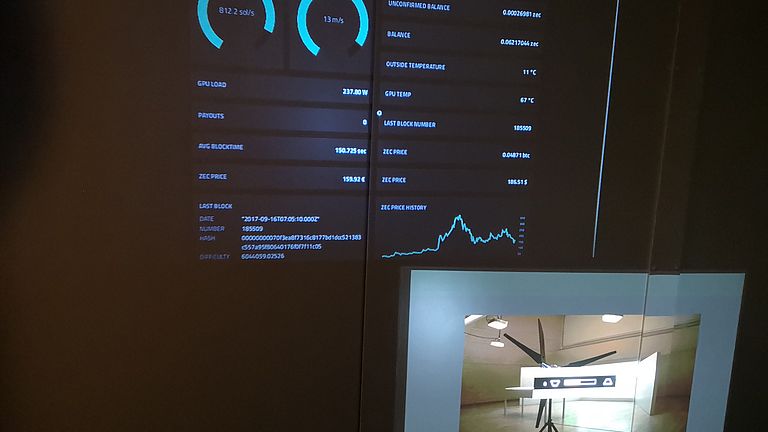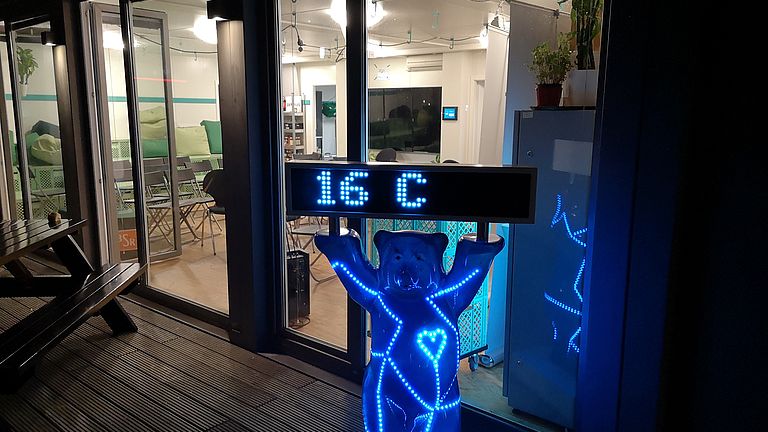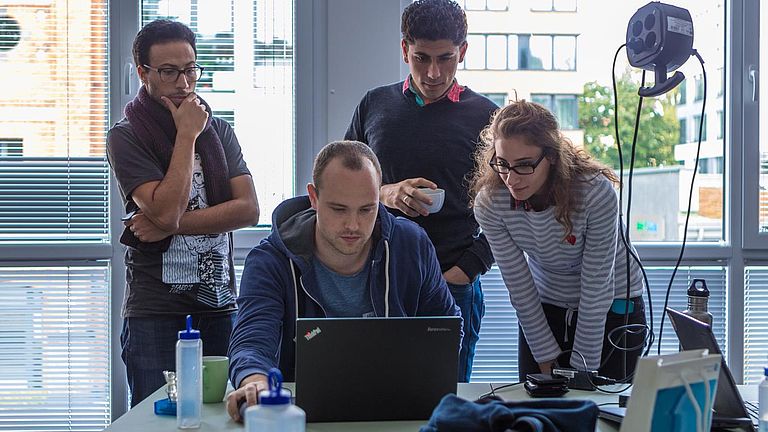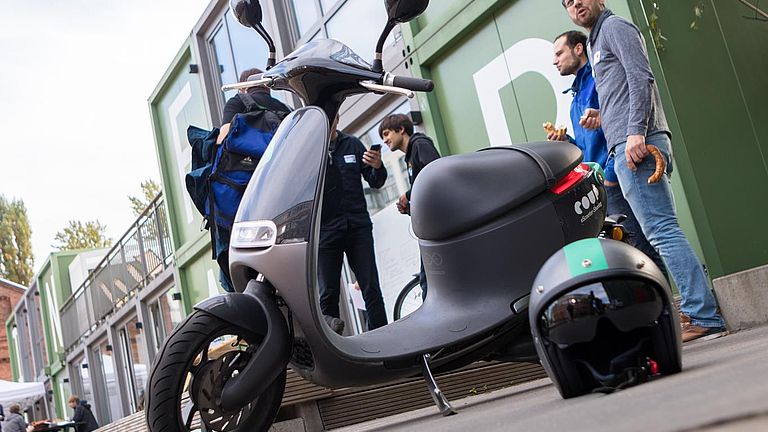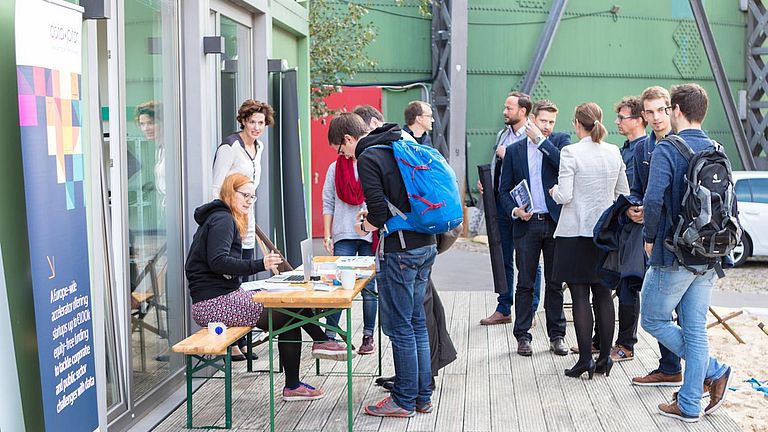Via Energyhack, developers and visionaries could weigh in and collaborate on a sustainable electricity supply and digital strategies for the future. The participants could develop applications and hardware prototypes and received professional assistance from energy and data experts. The focus lied on projects that should improve social sensibility with regard to electrical grids, energy grids and the energy transition.
Using open data from the energy industry provided by Stromnetz Berlin and other partners in the scope of the WindNODE research project, the implementation of ideas is promoted and the development of solutions is supported.
To this end, WindNODE partners Stromnetz Berlin and Fraunhofer FOKUS are jointly developing the existing grid data portal (www.netzdaten-berlin.de) into an open data portal together with Fraunhofer FOKUS. This portal provides detailed public data as well as private data in an anonymised and aggregated form, for instance about individual city districts or user groups. New data sources are also constantly being added, tapped into and integrated into the portal.
To promote new applications and business models, Stromnetz Berlin and Fraunhofer FOKUS organise hackathons (the “Energy Hacks”) together with the Open Knowledge Foundation, during which programmers, creative minds and young start-ups develop exciting and innovative ideas using the data provided.
In all, three hackathons were held between 2017 and 2020. During each event, the best exploitation concepts were awarded a prize. Particularly useful ideas (e.g. open data offers, visualisations or applications) are supported further during the actual implementation of a prototype or proof of concept. To this end, a total amount of 30,000 EUR is available per hackathon in the scope of WindNODE.
The hackathons cover two days during which several events are planned, such as professional contributions, workshops and project works.
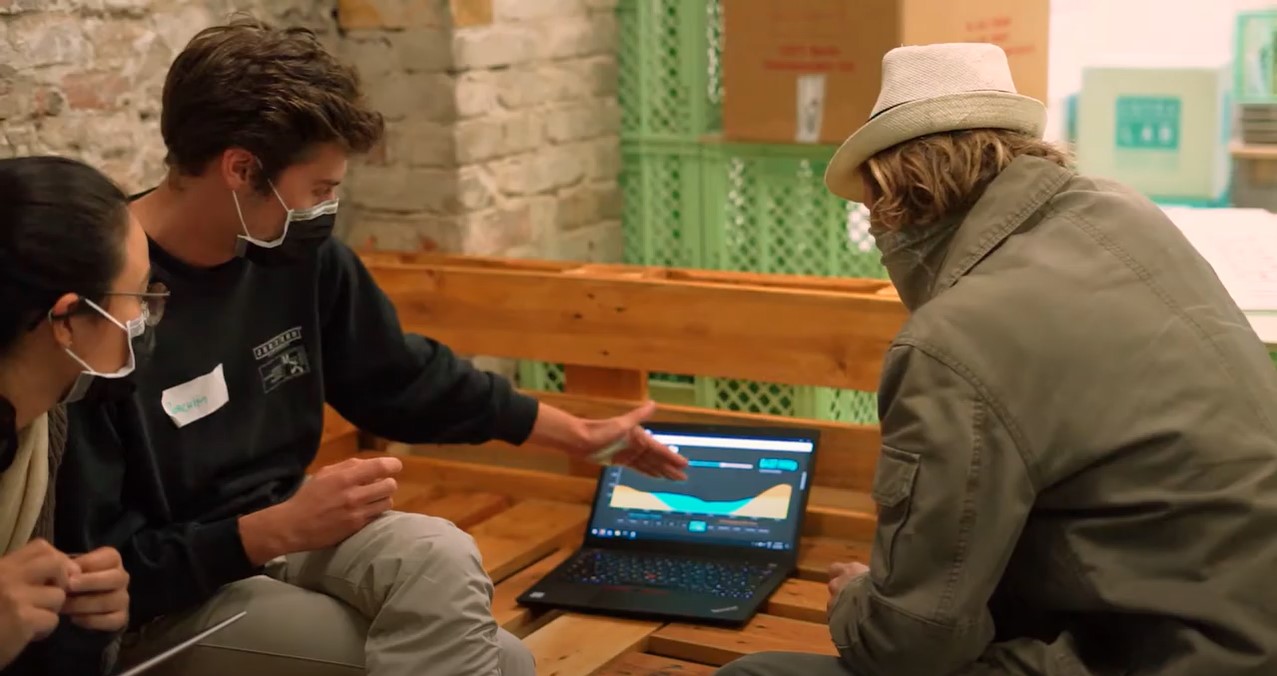
▶ Play
The YouTube video will only load and play after clicking. By clicking the video, you agree to Google's Privacy Policy.
The third WindNODE Energyhack, Energyhack3 – City * Energy * Mobility Transition, was held in 2020. As a result of coronavirus restrictions, this event was held not only in the Engelnest ('Angels' Nest'), the site of the brand-new InfraLab Berlin, but also remotely, so complete with remote catering for the participants joining us from home!
The aim of this hackathon was to implement creative projects using open data from the energy industry in just 24 hours in order to raise society's awareness of electricity and energy grids and the energy transition, and to develop applications for these domains and the following challenges:
1. The Mobility Transition in Berlin – What Would Be a Suitable Compromise?
2. Berlin as a Resilient City – How Can We Get Set for the Future?
3. Climate Protection, Energy and the Environment – How Can We Shape the Energy Transition in the City?
In this short time, three challenges, each addressing one of these questions, yielded no fewer than 11 project ideas – a number to be really proud of, given the challenges of organising the hackathon both remotely and on site for the various participants. In total, over 50 of these, either on site or joining us remotely, were involved in the development of these projects.
The Mobility Transition in Berlin challenge attracted four projects in all. The winner of this challenge was the BERouting project, with its team from Ulm and Berlin. BERouting is an intermodal journey planner for Berlin, based on the Digitransit platform. Drawing on existing open source projects, the idea is to show how quick and easy it is to transfer existing solutions over to new cities. The whole thing only works if the relevant information is available as open data. This also makes sure that municipalities can quickly identify any gaps.
The Resilient City challenge's winning project, Save the Berlin Lifebuoys, showed how simply solutions can support existing processes and what further untapped potential the deployment of the low-power protocol LoRaWAN has in Berlin. When a lifebuoy is missing from Berlin's glorious water bodies, up to now this could be reported by phone. However, it would be even handier if there were an app with a QR code that could be used to access an input screen where all the required information could be entered. In the future, it will also be possible to communicate changes in the positions of lifebuoys automatically and in an energy-efficient way with sensor technology using LoRaWAN. Freely accessible data on the level of Berlin's River Spree could be provided and much more information for the city's residents besides.
The Climate Protection, Energy and the Environment challenge was won by a project called PV Dashboard. An educational visualisation with study data that had been gathered from research, and was therefore freely available, on the development status and other capabilities of areas in Berlin with real potential in terms of solar power was devised over a short period. The idea and its implementation can be expanded.
Further details about the individual projects and the event can be found here (link in German).

▶ Play
The YouTube video will only load and play after clicking. By clicking the video, you agree to Google's Privacy Policy.

▶ Play
The YouTube video will only load and play after clicking. By clicking the video, you agree to Google's Privacy Policy.
The 2018 hackathon took place under the motto “Energyhack^2: energy for an efficient city”.
Like the year before, the event was held in the InfraLab Berlin on the EUREF campus, together with the Open Knowledge Foundation and the Senate Department for Economics, Labour and Companies (SenWEB) on 12 and 13 October.
The event kicked off with a keynote speech by Nicolas Zimmer of the Technologiestiftung Berlin technology foundation on the topic of "Looking beyond the horizon: energy, data and Smart City. Art, culture and diversity?” This was followed by a discussion on data policy: "Smart City without electricity is not possible - but it has to be efficient!" It mainly concerned questions regarding tomorrow’s efficient use of energy.
The hackathon started in the evening with a lecture on data visualisation. The data for the 2018 Energyhack^2 were not only provided by Stromnetz Berlin GmbH and SenWEB, but also by Berliner Wasserbetriebe and others. Within 24 hours, the participants were able to use these data to work on joint projects and make a contribution to the digital transformation.
The projects were pitched and evaluated by the jury the next day. The winning ideas included “Internet of Bears”, an open source IoT learning platform for pupils, based on the electric bear, and a data quiz “Who or what am I?”, dedicated to the question from where data originate. The jury moreover awarded several special prizes, for instance to the project of Thomas Tursic, in which an interactive simulation game for Berlin’s power grids was developed. The game deals with the functioning of the waste water pumping stations and shows which energy can be used to operate them. The game has been designed so that children can also be introduced to these questions.
The project was already developed at the Energy Hack of 2017, was further developed in 2018 and qualified for the WindNODE Challenge of Stromnetz Berlin GmbH.
Here is a link to the game.

▶ Play
The YouTube video will only load and play after clicking. By clicking the video, you agree to Google's Privacy Policy.

▶ Play
The YouTube video will only load and play after clicking. By clicking the video, you agree to Google's Privacy Policy.
The first WindNODE hackathon took place under the slogan “You Decide” on 22 and 23 September 2017 in the InfraLab at the EUREF campus.
The Energy Hack started with a kick-off event consisting of two panel discussions. Data experts, developers and researchers exchanged on the subjects of data protection and data exploitation, on the importance of exchanging information and innovations for the use of energy.
By the evening, the hackathon started, supported with data from Stromnetz Berlin, Schneider Electric, 4cast, Berliner Wasserbetriebe and Netze Baden-Württemberg. All data were aggregated in the WindNODE data portal in advance and made available to the participants for their projects and ideas.
The second day offered other events for all interested parties, in addition to the presentation of the hackathon results. Those who wanted could build a smart electric bear from a kit during the day, view the Micro Smart Grid or the Gasometer or take part in workshops of the Technologiestiftung Berlin technology foundation. There was also a presentation of the autonomous cleaning robot “Enway”.
A total of 12 projects originated during the event, from which the jury selected winners in four different categories.
The honours went to the “Strombär” team in the Energy category, the “EnergyDiversity” team in the grid category, the “EVCount” team in the mobility category and the “Tursics Hattrick” team in the infrastructure category with their project “Waste water as a service”.
Acquiring impulses for the energy transition with Open Data
Disclosing the data creates a large potential for innovative developments. Future visions and problem-solving approaches are created based on the data provided if they are used for further development, analysis and evaluation. Stromnetz Berlin has therefore taken it upon itself to use its Open Data platform to inspire as many WindNODE partners as possible on the subject of open data.
If you want to make data sets available, please contact us at info@fokus.fraunhofer.de.
Further information here:
